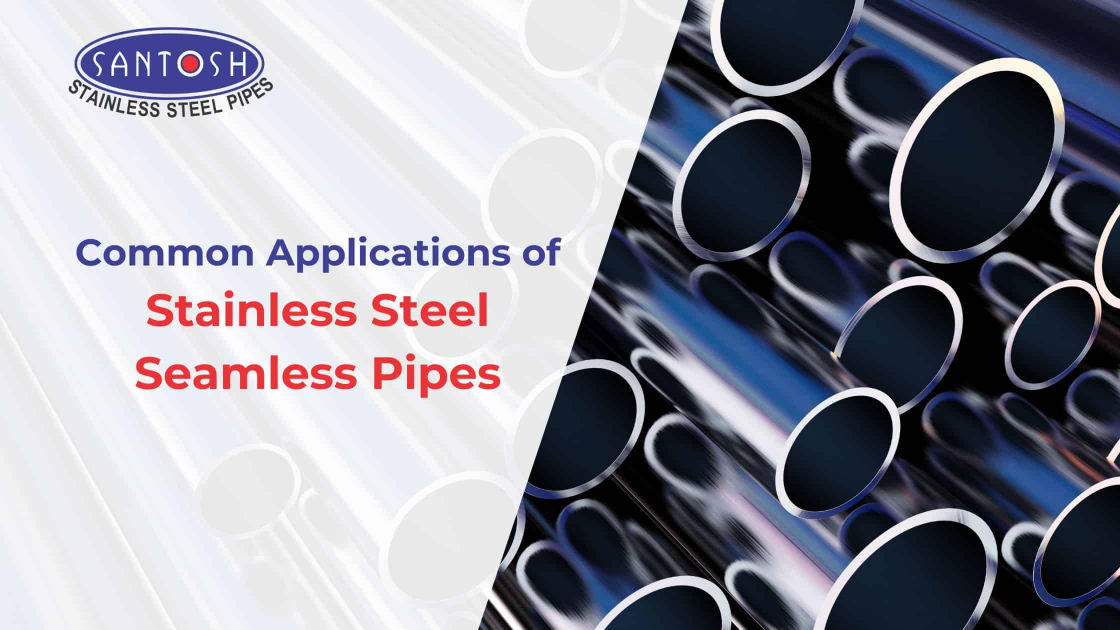
Stainless steel is a commonly used alloy today, due to its distinct properties. To improve its qualities, it is combined with other elements including carbon, iron, nickel, molybdenum, Sulfur, and others. Stainless steel seamless pipes primarily contain more than 10% chromium, which acts as a protection on the steel's surface. Stainless steel is currently employed in many applications in addition to carbon steel. Because stainless steel contains chromium, which offers corrosion resistance and a flawless finish, it has been commonly used for pipelines and tubing. Additionally, stainless steel seamless pipes require very little maintenance and do not carry major scratches.
A boiler tube is a seamless pipe that falls within the category of seamless steel tubes. Stainless steel seamless pipes are made using similar techniques; however, the steel grades used to make steel pipes must follow strict specifications.
In order to construct a hollow tube or shell, a solid steel sheet or bar is heated and Moulded into a solid circular shape known as 'billets' and then cast over a form like a piercing rod. There are many seamless pipes, and they can be seen under and behind homes, laboratories, and commercial and industrial activities. Steel pipes are used to transport anything from air to water to natural gas to waste.
The Benefits of Seamless Stainless Steel Pipe
-
When the walls of a seamless pipe are thicker, they are more practical and less expensive, but when the walls are thinner, processing costs go up.
-
The production method determines the performance restrictions for seamless pipes.
-
All seamless steel pipes share a number of similar flaws, including uneven wall thickness, low brightness on the inside and outside the pipe, low precision, high fixed length costs, and pits and black spots that are difficult to
remove.
Applications for stainless steel seamless pipes include the transmission of compressed natural gas (CNG) for vehicle refuelling, the provision of fireman air, and the transfer of hydrogen for material handling applications. Businesses may save time, money, and labour during installation since seamless pipes only require one fitting.
Application of Stainless steel seamless pipes
1. Construction Industry
One of the largest consumers of stainless seamless steel pipes is the building industry. Buildings, bridges, and other constructions all utilise these pipes in their construction. Because of their strength, resilience to corrosion, and longevity, they are preferred over other materials. Also, they are simple to use, which makes them well-liked by builders and contractors. Applications for seamless stainless steel pipes in the construction sector include water supply and drainage systems, gas delivery methods, systems for heating and cooling, structural assistance, structural characteristics, stadiums and other sporting venues can be built using seamless stainless steel pipes. They provide structural support, seating, and drainage systems. The building sector favours stainless steel pipes because of their extended lifespan and ease of maintenance.
2. Oil and gas sector
Another significant market for seamless stainless steel pipes is the oil and gas sector. Oil, gas, and other fluids are transported through these pipes. Because of their superior corrosion resistance, great strength, and longevity, they are favoured over other materials. Oil and gas pipelines are just one application for seamless stainless steel pipes in the oil and gas sector. Drilling rigs used offshore Refineries petroleum refineries tank storage Oil and gas companies frequently choose stainless steel seamless pipes because of their ability to tolerate abrasive conditions and high temperatures. They are also capable of the corrosion that saltwater and other substances can cause.
3. Industry of Food and Chemical Processing
Pipes made of stainless steel are also widely used in the chemical and food processing industries. Chemicals, acids, and other corrosive materials are transported through these pipelines. They transfer liquids and gases in the food processing industry. In the chemical and food processing industries, seamless stainless steel pipes are utilised in a variety of applications, including plants that process Chemicals food processing facilities plants that make medicines plants that cleanse water distilleries and breweries because they are corrosion-resistant and able to withstand high temperatures and pressures. Stainless steel seamless pipes are a common option in the chemical and food processing industries. They are perfect for usage in the food processing industry because they are also simple to maintain and clean.
4. Fertiliser production:
Ammonia plants, high-pressure pipe systems, ammonia synthesis machinery and heat pumps, and methane plants are among the main application areas in the fertiliser sector.
5. Exchangers of heat:
A heat exchanger is a piece of machinery that converts heat from one medium to another. Steel is stainless. Thus, the applications involve the usage of seamless pipes. Exchange of heat. Specifically created pipes that cover the equipment for pipeline systems and heat exchangers.
Conclusion
Stainless steel seamless pipes have several benefits across a range of applications. They are frequently employed in sectors including oil and gas, chemical, and construction thanks to their remarkable corrosion resistance, high strength, and durability. The structure and smooth interior provided by the seamless production technique improve fluid flow efficiency. We, at Santosh Steel, manufacture and supply stainless steel seamless pipes customised to your ideal industrial application.